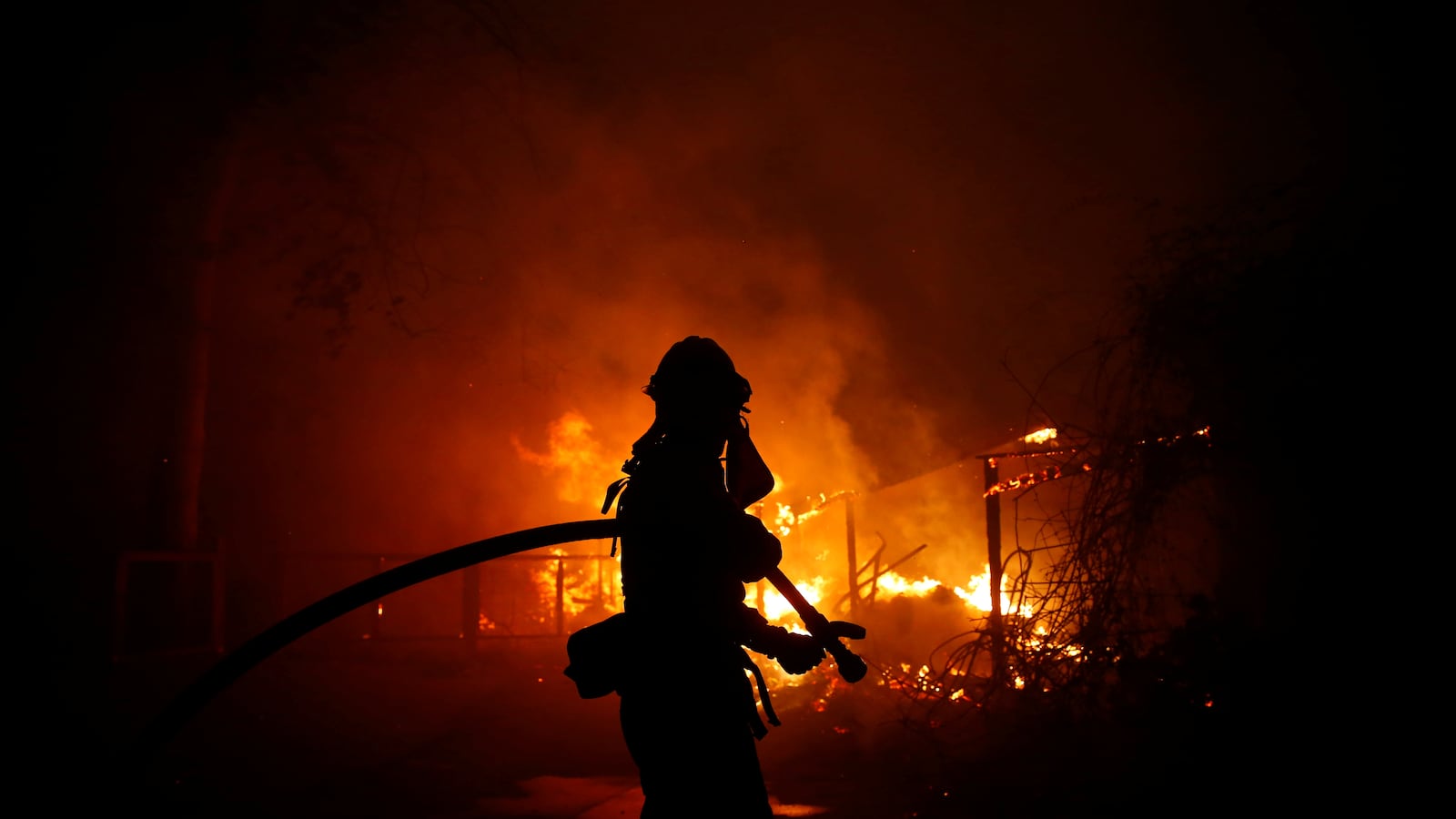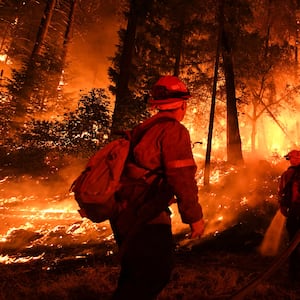MALIBU, California—“You write about it. You study it. Then you suddenly get a call at 11:30 p.m. saying your home is under voluntary evacuation. Then you see that red glow in your rear mirror when you leave.
“You have to experience it.”
Glen MacDonald, a geography professor at the University of California, Los Angeles, has studied climate change and the effects of wildfires for decades. But it wasn’t until Friday night that he experienced the volatile, deadly rage of California’s wildfires firsthand.
MacDonald and his family were among the hundreds of thousands of people evacuated from their homes in Southern California as wildfires continue to sweep through the region, gutting houses and leaving much of the area engulfed in smoke and fumes.
MacDonald and his family had an escape plan. This included taking valuables and paperwork that could not be replaced and sealing their attic. “Adrenaline kicks in,” he says.
But MacDonald said he and his family were only able to escape because of local authorities. “I can’t say enough about the system here,” he said. “They phoned. Multiple numbers. Police went door to door. They used loudspeakers through the streets.”
That’s why MacDonald is especially frustrated at President Trump’s tweets about California’s fire management.
MacDonald doesn’t believe it.
“As, frankly, someone that was evacuated and has visited burnt-out homes, that Trump tweet today blaming the state was an insult and so uninformed,” MacDonald said. “There are no forests to manage here. Coastal fires and shrubs are part of what burnt. It was a statement made with insensitivity and ignorance.”
MacDonald said the best way to fight wildfires was not blaming management.
“You can look at it in different ways,” he says. “Wildfires are natural here. There are records of early Spanish settlers that used fires for necessary land clearance but times have changed and the ecosystem, and number of people living in California. [But] there are 30 million people here now.”
Things are getting worse.
“If you look at the 20 biggest fires in the state, 15 of those have happened since 2000,” he pointed out. “There are now bigger fires, and more and more record breakers coming in. Fire season is getting longer. We are also seeing record-breaking temperatures. It is getting hotter and hotter. Spring starts earlier. Our fire season now goes into the winter.”
MacDonald’s analysis is that the lack of seasonality on fires can be traced to climate change.
This double whammy of wildfires is especially powerful. High temperatures mean that rain has been a rarity, a phenomenon scientists have referred to as “negative rain,” and what meteorologists say is more extreme than having no rain at all. High winds rushing in from the east haven’t helped already low humidity rates, which have made the air so cracklingly dry that brush has ignited almost immediately.
Jon E. Keeley, a research scientist at the U.S. Geological Survey and an adjunct professor at the University of California, Los Angeles, said the fires benefited from the mere fact that it is autumn.
“The primary driver of these fires is the extreme winds we get periodically in the autumn, in northern California, the site of the disaster affecting the town of Paradise,” he told The Daily Beast. “They are the result of a synoptic weather pattern of high pressure in the interior of the U.S. coupled with a low pressure off the coast of California.”
That pressure doesn’t ignite a fire most years. But if a spark comes from a campfire, a lit cigarette, or an uncontrolled electrical fire, that spark can become catastrophic from the combination of all these factors.
Add to that dead vegetation, which Keeley said has been around since 2012.
“Dead vegetation contributes to rapid fire spread and higher fire intensity making it extremely difficult to fight these fires,” he said. “The combination of extreme drought, vegetation dieback, high winds, and accidental human ignitions are the reason these fires are so severe.”
When can we contain these fires? That’s a question no expert can seem to answer.






